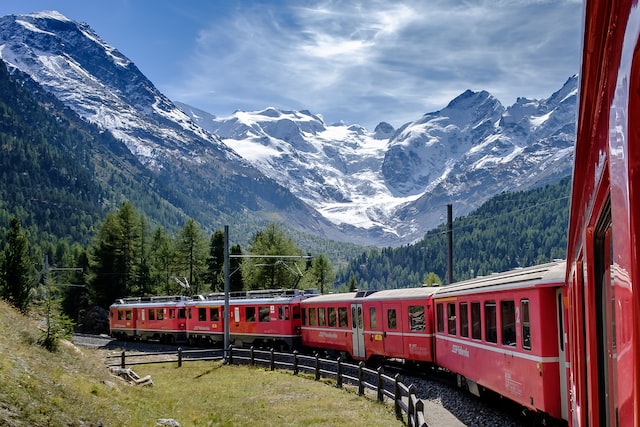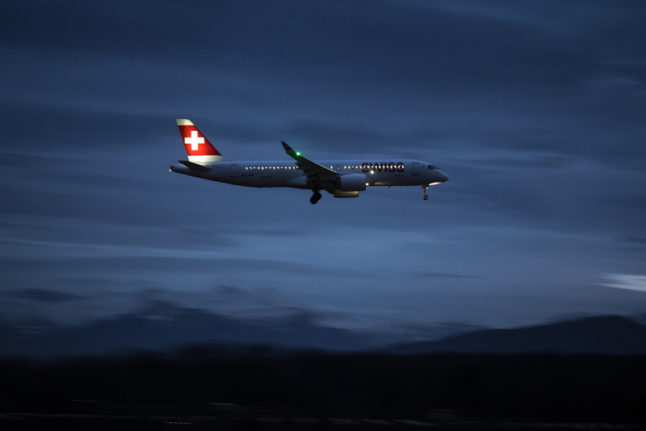It’s no shock that the Swiss love getting around on trains.
With one of the world’s densest and most extensive rail networks, Switzerland boasts around 5,300 kilometres of tracks and 804 stations.
A report from Eurostat, Europe’s Statistical Office, has previously shown that the Swiss are Europe’s most frequent train travellers per capita.
Meanwhile, trains generally run on time – and some even cater to families with playgrounds for children.
READ ALSO: Slides and climbing frames – how Swiss trains entertain children
And new figures show that train travel is continuing to boom in the Alpine nation following the pandemic, with passenger numbers well above previous years.
The number of so-called passenger kilometres on Swiss train journeys reached a new peak of around 5.6 billion in the second quarter of this year – the highest number recorded since quarterly reporting began in 2014.
That’s according to figures compiled by the information service for public transport, Litra, and the Association of Public Transport (VöV).
The previous record from the third quarter of 2019 was 5.49 billion passenger kilometres. The traffic performance of the second quarter of 2023 is 8 percent higher than in the first quarter of the current year, which was already the strongest first quarter ever recorded.
Compared to the same quarter last year, the growth is as high as 14.8 percent, and compared to the second quarter of 2019 – the last year before the outbreak of the Covid pandemic – the increase is 5.9 percent.
READ ALSO: Trains in Switzerland are excellent – so why are cars still king?
So what’s contributing to the Swiss thirst for train travel?
According to experts, growth in passenger rail transport is currently being driven by regional traffic, with weekend trips in particular boosting train travel.
Perhaps it’s down to renewed enthusiasm to explore Switzerland’s amazing nature and cultural spots, particularly since the pandemic.
READ ALSO: ‘Secret’ places to visit in Switzerland you didn’t know existed (unless you live there)
Freight transport by rail loses attractiveness
In freight transport, the traffic performance in the second quarter of this year was 3.08 billion net tonne-kilometres, just above the first quarter. Compared to the same quarter last year, this is a decline of 3.2 percent.
Litra and VöV said they believed this is partly due to high production costs on the European corridor in transalpine transit-traffic as well as the current economic developments in Europe.
Compared to the same quarter of the previous year, transport performance in transalpine freight transport fell more sharply than in freight transport as a whole, by 4.4 percent.



 Please whitelist us to continue reading.
Please whitelist us to continue reading.
Member comments